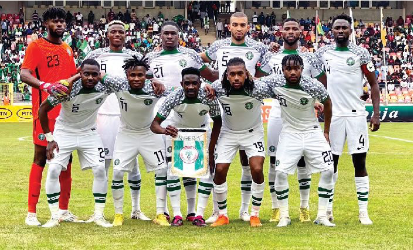
The Nigeria Union of Petroleum and Natural Gas Workers (NUPENG) strike will continue. The industrial action, which commenced on Monday, enters its second day after the meeting with the Nigerian government ended without an agreement.
The closed-door meeting organized by the federal government to resolve the dispute between NUPENG and the Dangote Group ended without a resolution.
NUPENG is one of the many unions in Nigeria, primarily responsible for transporting fuel products to various parts of the country.
If they shut down, it means no tanker has loaded or transported any product to any location since Monday. What this implies is that some filling stations may have begun running out of fuel to sell, which could lead to scarcity.
A meeting was held on Monday in Abuja, chaired by the Minister of Labour and Employment, Mohammed Dingyadi. Other attendees included the Minister of State for Labour and Employment, Nkiruka Onyejeocha, leaders of Nupeng, the Nigeria Labour Congress, and the Trade Union Congress (TUC).
Also present were the Executive Director, Distribution Systems, Storage and Retailing Infrastructure of the Nigerian Midstream and Downstream Petroleum Regulatory Authority (NMDPRA), Ogbugo Ukoha, and representatives of the Dangote Group and MRS Petroleum.
What is the source of the dispute between Nupeng and Dangote refinery?
Nupeng is protesting Dangote Petroleum Refinery’s plan to import 4,000 Compressed Natural Gas (CNG)-powered trucks for distributing petroleum products to retailers, which the union claims will cause disruption to its truck drivers department.
In a statement issued on Friday, the union accused Dangote refinery of anti-labour practices, alleging that the company plans to prevent the new drivers of the imported trucks from joining any union.
Nupeng has expressed opposition to Dangote Petroleum Refinery’s plan to import 4,000 Compressed Natural Gas (CNG)-powered trucks for distributing petroleum products to retailers, which the union claims will cause disruption to its truck drivers department. In a statement issued on Friday, the union accused Dangote refinery of anti-labour practices, alleging that the company plans to prevent the new drivers of the imported trucks from joining any union.
As stipulated in Section 254C (2) of the Nigerian Constitution, a ratified ILO provision assumes the status of a constitutional provision. Thus, any employer’s practice or policy designed to deny workers their right to association is an infringement on the constitution. Nupeng requests the NLC, TUC, and other trade unions to collaborate with them in this struggle.
Furthermore, they are objecting that the 4,000 trucks Dangote intends to bring will threaten the livelihoods of their members in the Petroleum Tanker Drivers branch.
Nupeng further noted that they had conducted talks and convened several meetings with the Nigerian Association of Road Transport Owners in an effort to convince Dangote to rethink the decision, but they purportedly declined to listen.
The situation escalated when MRS Oil firm, under the management of Sayyu Dantata, Dangote’s cousin, began recruiting drivers for CNG trucks and required them to sign agreements relinquishing membership in any oil and gas union.
The refinery scheme, initially set to launch on August 15, was postponed due to delays and logistical complications in China; nonetheless, the refinery intends to commence operations with a sizable fleet of trucks upon arrival in Nigeria.



